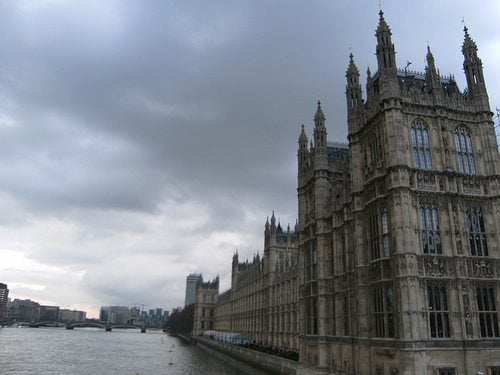

Features
No sustainable vision in party manifestos
Political parties need your vote and every five years they will promise almost anything to get it – ‘cast iron’ commitments that are easily discarded once in power. In the most closely fought election since 1974 (although 1992 comes close) tactical shopping lists of goodies have trumped any sustainable vision. We need better politics than this.
At the end of April we’ll be publishing our Guide to Sustainable Democracy. On Monday next week we’ll take a much closer look at each of the parties’ 2015 manifesto commitments, but it is apparent that none of the major parties has a clear vision for the future of our country.
Professor John Curtice of Stirling University made this point eloquently at the recent Vote for Policies debate at Birkbeck college. He set a simple exercise. On a pad of paper write a paragraph on the kind of Britain wanted by SNP, UKIP and the Greens. It’s relatively straightforward. Scottish independence, Britain’s exit from Europe/controlled immigration and a greater focus on the environment all pop into the head for each party respectively.
Now try and do it for the three major parties. It’s almost impossible. We know that Labour is somewhere to the left of the Conservatives, and vice versa. The LibDems are somewhere in between the two, but we’re not entirely sure where. Two white blokes, with similar and narrow academic and socio-economic outlooks are in the running to be Prime Minister. Another white bloke with the same outlook wants to be either of their deputy.
The Conservatives should be rolling back the state and focusing on unleashing the creative destruction of markets. Labour should be rolling the state forward with majority-pleasing policies such as employment rights and renationalising the utilities and rail monopolies. LibDems should have democratic reform at the centre of their platform. Every party should be building a lot more houses. No, a lot more than you’re thinking.
The Conservatives should be sweeping away income taxes altogether and introducing luxury and wealth/land value taxes as set out by Adam Smith. Labour should be strengthening workers’ representation on company boards and in public sector leadership. The LibDems should be making fundamental democratic reform a red line to joining any coalition i.e. unless we fix the electoral system there will be no LibDem participation in an illegitimate government. And before readers call us out and say some of these things are in party manifestos. If the election taught us anything, it’s that manifesto commitments are not worth the paper they’re written on: no top down reorganisation of the NHS, no increase in VAT and the abolition of tuition fees, anyone?
All parties should be deeply passionate about the next big economic age – the sustainable revolution. The agricultural revolution gave way to the industrial revolution, which gave way to the information revolution. The next wave is a fusion all three: agriculture, industry and information, to create a sustainable age – or an unsustainable one.
The leading economies of the future will be at the forefront of sustainable food supply, farming, fishing and forestry. They will have clean technology, offshore renewable energy and resource efficiency as the dominant industrial themes. They will deploy real-time information and big, open data to optimise urban and rural spaces, supply chains and distribution.
Sustainability should be the central plank of the party of capital, due to the new and destructive green investment opportunity it creates. This should be the central plank of the party of working people, due to the new green employment opportunity it creates. This should be a central plank of the party of democratic reform, due to the dynamic, political engagement and diversified economic opportunity it creates.
None of the major parties have provided a clear vision of the Britain they want to see or embraced this next economic revolution. The three major parties have simply deployed core supporter-pleasing gimmicks and goodies, while wrapping themselves in the ‘economic competence’ and ‘voice of the working people’ clothes of their opposition. Which probably explains why the answer to the question ‘who governs Britain in 2015?’, will most likely be ‘none of the above’.
We desperately need better politics than this.
To really understand party policies and who you have the greatest affinity with take the Vote for Policies survey.
Photo: shining.darkness via Flickr
Further reading:
General election: Green Party turns to the crowd to raise funds


 Environment12 months ago
Environment12 months agoAre Polymer Banknotes: an Eco-Friendly Trend or a Groundswell?

 Features11 months ago
Features11 months agoEco-Friendly Cryptocurrencies: Sustainable Investment Choices

 Features12 months ago
Features12 months agoEco-Friendly Crypto Traders Must Find the Right Exchange

 Energy11 months ago
Energy11 months agoThe Growing Role of Solar Panels in Ireland’s Energy Future






























